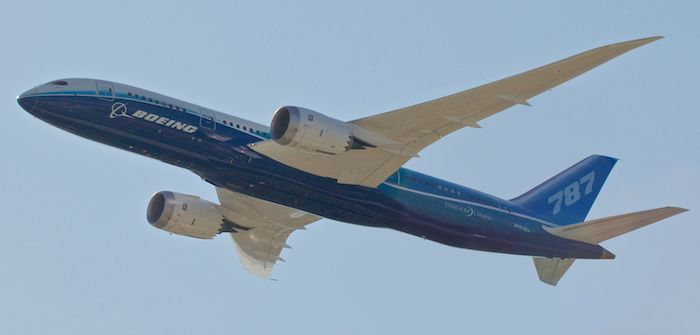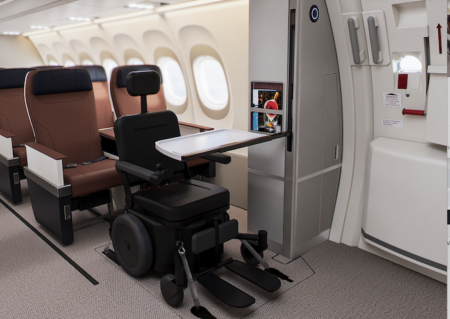The Global Cabin Air Quality Executive (GCAQE), a UK non-profit organisation representing air crew and consumers, that deals with contaminated air issues and cabin air quality, has launched the ‘Clean Air Campaign’. The campaign calls upon regulators and governments globally, to mandate the introduction of effective ‘bleed air’ filters and contaminated air warning sensors on passenger aircraft.
To support their campaign the GCAQE has released a brief educational film in over 40 languages. They have also released a short animated film explaining the basics of the air supply system on aircraft. Both films are available at the GCAQE Clean Air Campaign page.
The GCAQE campaign is supported by representatives of over one million aviation workers, from the European Trade Union Confederation (ETUC), the European Transport Workers’ Federation (ETF), the International Transport Workers’ Federation (ITF) and the European Cabin Crew Association (EurECCA).
According to GCAQE, over the last 20 years there have been over 50 recommendations and findings made by 12 air accident departments globally, related to contaminated air exposures on passenger jet aircraft. The organisation states that commercial aircraft should be fitted with contaminated air warning systems to notify passengers and crews when the air they are breathing is contaminated.
GCAQE says there is a design flaw in the way the breathing air supply on all passenger jet aircraft (except the Boeing 787) is supplied. The breathing air is provided to passengers and crews unfiltered directly from the compression section of the engines or from the Auxiliary Power Unit (APU), the small engine in the tail of the aircraft. This is a process known as ‘bleed air’ because it is ‘bled’ from the hot compression section of the engine. The ‘bleed air’ is not filtered and GCAQE says it can be contaminated with synthetic jet engine oils and hydraulic fluids.
GCAQE has studied cans of jet engine oils and hydraulic fluid products and found that they state warnings including: “Do not breathe mist or vapour from heated product”, “Risk of causing cancer”, “Risk of infertility” and “Risk of neurological effects”.
The organisation asserts that since the ‘bleed air’ used for the Fuel Tank Inerting System (FTIS) is filtered, the bleed air that people are breathing should also be filtered. FTIS was introduced after the TWA 800 tragedy to prevent a fuel tank ignition. The FITS system works by providing a nitrogen-rich environment in the fuel tank. The system also uses bleed air, but because of the presence of engine oil fumes in the bleed air and their adverse effects on the system, this air is filtered. A short video explaining this assertion is available HERE.
Both jet engine oils and hydraulic fluids contain organophosphates. These chemicals have been found in hundreds of swab samples carried out on the interior surfaces of aircraft and in many air monitoring studies, according to GCAQE.
GCAQE spokesperson, Captain Tristan Loraine, stated: “In the GCAQE’s view, despite knowing about this issue for decades, aviation regulators around the world such as the US Federal Aviation Administration (FAA) and the European Union Aviation Safety Agency (EASA) have, on this specific problem, put the corporate interests of the aerospace industry ahead of flight safety and public health.
“They have failed to mandate the installation of effective contaminated air warning systems or ‘bleed air’ filtration systems. They have also failed to require airlines to inform crews or passengers about these exposures. Instead, they claim the air in aircraft is better than in your home and continue to call for more research. The sole result of calling for further research will be to delay having to take mitigating actions which are needed now, to finally resolve this public health and flight safety issue,” added Loraine.
The GCAQE’s announcement is not driven by new findings: the organisation is promoting an event – the ‘2021 Aircraft Cabin Air Conference’, a four-day event (15 to 18 March 2021, from 1500 to 2000 GMT daily) that will promote potential solutions and emerging technologies for aircraft operators, such as total cabin air filtration systems, warning sensors and catalytic converters.
The GCAQE has also recently created a global reporting system for contaminated air events, known as GCARS. The ‘Global Cabin Air Reporting System’, which anyone can use, is available at: https://gcars.app/





